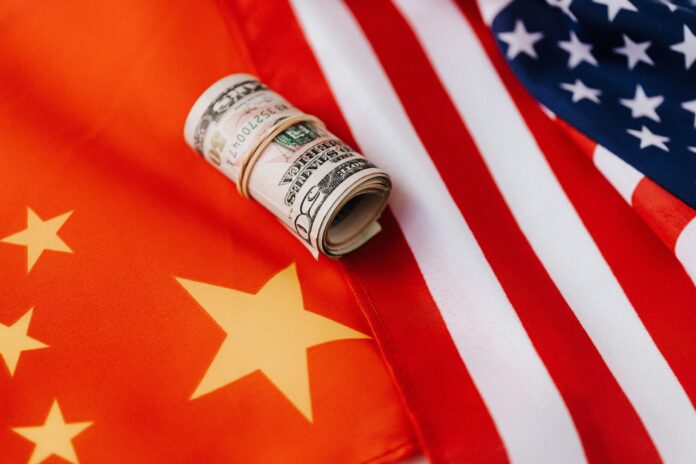
According to the CEO of HashKey Group, the United States can change China's course towards cryptocurrencies and exert pressure on the Asian powerhouse to accept digital assets again.
Xiao Feng, Chairman and CEO of HashKey Group, has raised an interesting perspective on the future of cryptocurrencies in China, suggesting that Donald Trump’s pro-crypto administration could be a catalyst for the Asian country to reconsider its current restrictive stance towards crypto assets.
According to Feng, if the United States adopts clear and favorable policies towards cryptocurrencies, this could accelerate the opening of the Chinese market within approximately two years, which would represent a significant change, considering that experts estimated that the return of crypto assets to this nation could take between five to six years.
The technology race: United States vs China
In an interview with the South China Morning Post, Feng argued that there are several factors that could motivate China to reconsider entering cryptocurrencies. One of these is the technological competition that exists between the two countries and that plays a crucial role in global leadership.
Although this competition is mainly focused on emerging technologies such as Artificial Intelligence (AI), Feng believes that cryptocurrencies are increasingly coming to the fore in the fight for global economic hegemony, so if the United States sets clear policies for the crypto industry, constantly legislates, and promotes the development and growth of digital assets, it will undoubtedly become a driving force for China to accept cryptocurrencies again. said.
Likewise, increasing geopolitical pressure and sanctions imposed on Russia may also lead China to re-evaluate its approach to cryptocurrencies, which until now are considered by the government as a threat to the country's financial stability. So, according to Feng, if the United States positions itself as a leader in the digital asset sector, China may feel forced to adapt in order not to be left behind in this technological race.
The influence of Trump's pro-crypto leadership
Donald Trump has promised to dismantle regulatory barriers that are considered anti-crypto during his administration, expressing his intention to create a “strategic Bitcoin reserve” and implement policies that favor the development of cryptocurrencies in general. Feng firmly believes that if the Trump administration establishes a clear regulatory framework and actively promotes the crypto sector, China will be forced to reconsider the strict ban on cryptocurrencies it has maintained until now.
Evidently, competition in the technological and financial spheres is fierce, and allowing greater access to cryptocurrencies could be seen as a way of not falling behind other nations that are adopting these types of emerging technologies.
Hong Kong's impact on cryptocurrency adoption in China
On the other hand, Hong Kong has now become a focal point for cryptocurrencies and many consider that the city could serve as a bridge to the Chinese market.
Hong Kong has been implementing crypto-friendly regulations in recent years, leading many to consider the city as a testing ground for cryptocurrency adoption in the region. Thus, despite the strict regulations imposed by China’s central government on crypto assets, Hong Kong’s “one country, two systems” principle has kept it taking a more open stance towards these innovations, allowing businesses and projects related to cryptocurrencies, blockchain technology, and Web3 to flourish.
According to Feng, this favorable environment could also influence and facilitate the gradual entry of cryptocurrencies into the Asian powerhouse. He further noted that stablecoins could create a viable avenue for China to reopen its market to crypto assets. These digital currencies, backed by assets to maintain a stable value compared to traditional cryptocurrencies, offer an attractive solution for cross-border trade and could be seen as less threatening by the Chinese government.
The path to cryptocurrency adoption
Overall, as geopolitical tensions rise and competition for technological supremacy intensifies, China is likely to evaluate its options regarding cryptocurrencies. The possibility of adopting stablecoins could be the first step towards further opening up to this market.
So, as the US looks to establish itself as a global leader in the crypto space, its influence could be instrumental in causing China to reassess and soften its current restrictive stance. As Feng commented, this shift in China’s stance towards cryptocurrencies could materialize in the next two years if political and economic conditions in the US are favorable.
Main image from Pexels



